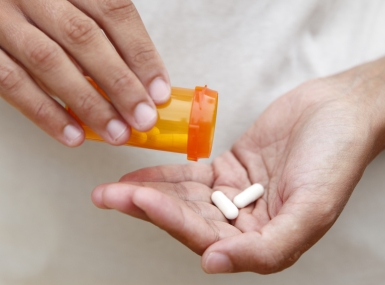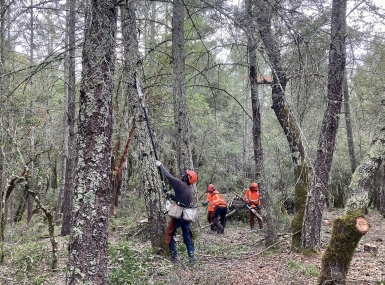Congress advances Second Chance Act reauthorization
Author

Brett Mattson

Naomi Freel
Upcoming Events
Related News

Key Takeaways
UPDATE: On December 4, the Senate passed the Second Chance Reauthorization Act (S.4477) by unanimous consent, a major milestone for supporting county reentry programs.
On April 16, the Second Chance Reauthorization Act of 2024 (H.R. 8028) was introduced in the U.S. House of Representatives with robust bipartisan support. NACo supports this legislation, which would reauthorize funding for Second Chance Act (P.L. 110-199) programs for five years.
Second Chance Reauthorization Act explained
Second Chance Act programs support America’s counties in improving reentry services, reducing recidivism and strengthening public safety. Enactment of the Second Chance Reauthorization Act will ensure the continued availability of critical reentry grant programs and expanding substance use treatment services and supportive housing for county residents.
Specifically, this legislation would:
- Support individuals reintegrating into their communities post-incarceration through the continuation of critical grants programs offering targeted services to justice-impacted individuals.
- Expand allowable uses for supportive and transitional housing services for those returning from jail.
- Enhance addiction treatment services, including peer recovery, case management and overdose prevention, for individuals with substance use disorders.
- Address challenges related to substance use disorder and overdose crises, especially considering the high prevalence within the jail population.
- Focus on critical areas such as substance use disorder treatment, housing, employment and essential reentry services for communities.
Importance to counties
The Second Chance Act authorizes federal grants that assist states, counties and nonprofit organizations in developing and implementing programs to help formerly incarcerated individuals successfully reintegrate into the community after their release from correctional facilities. Administered through the Office of Justice Programs at the U.S. Department of Justice (DOJ), Second Chance Act programs have helped numerous counties provide reentry services – like employment assistance, substance abuse and mental health treatment, housing, family-center programming and mentoring – to adults and juveniles returning to the community from prisons or jails.
Since its establishment in 2008, the Second Chance Act has funded more than 1,100 grants to state and local governments and nonprofit organizations, and more than a third of these grants have been awarded to counties. These investments in reentry programs have proven effective in helping individuals successfully reintegrate into their communities. Successful reintegration results in lower rates of recidivism, which improves public safety and provides significant savings to counties, who collectively spend $107 billion each year on criminal justice.
Resource
Second Chances, Safer Counties: Workforce Development and Reentry

Related News

U.S. House reintroduces legislation to address the Medicaid Inmate Exclusion Policy
Two bipartisan bills aimed at addressing the Medicaid Inmate Exclusion Policy (MIEP) were recently reintroduced in the U.S. House of Representatives.

House E&C Committee advances SUPPORT Act reauthorization
On April 9, the U.S. House Energy and Commerce Committee marked up the SUPPORT for Patients and Communities Reauthorization Act of 2025. The bipartisan bill aims to reauthorize critical programs that target overdose prevention amid the renewal of the opioid crisis Public Health Emergency declaration.

FEMA halts disaster mitigation grant program
On April 4, the Federal Emergency Management Agency (FEMA) announced it will not allocate $750 million this year for the Building Resilient Infrastructure and Communities (BRIC) grant program. According to the press release, FEMA will also stop funding BRIC projects that were previously approved and are still underway.